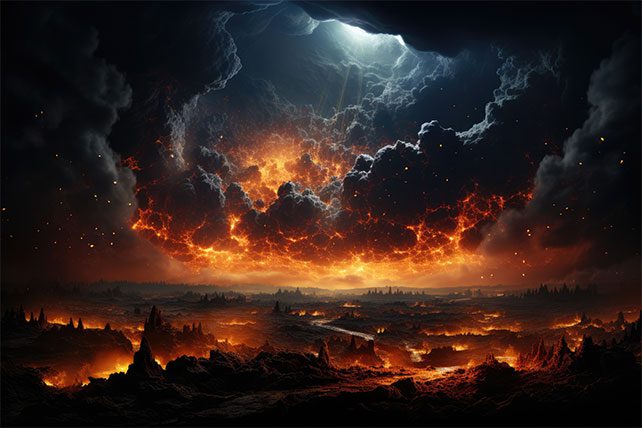Symbolic Representations in Scripture
Judgment and Redemption
Armageddon encapsulates themes of divine judgment against rebellion and the redemption of creation. It reflects the biblical narrative of salvation history, where God’s ultimate victory over evil restores harmony to the created order.
The Role of Christ in Armageddon
Central to Christian theology is the role of Jesus Christ in the Armageddon narrative. As the divine judge and redeemer, Christ’s second coming is intricately linked with the events of Armageddon, marking the final defeat of evil and the establishment of an everlasting kingdom.
RELATED: The Second Coming – 4 Lessons From the Parable of the Bridesmaids
Armageddon in Modern Culture
In contemporary times, “Armageddon” has transcended its biblical origins to become a metaphor for any potential global catastrophe that threatens human existence, such as nuclear war, environmental disasters, or pandemics. It permeates literature, film, and popular discourse, symbolizing ultimate destruction and the potential for renewal or apocalypse.
The biblical concept of Armageddon transcends a mere apocalyptic battle to encompass a rich tapestry of theological and spiritual themes. It challenges believers to reflect on the nature of divine justice, the promise of redemption, and the unfolding of God’s salvific plan for humanity. Understanding Armageddon within the broader biblical narrative invites deeper engagement with the mysteries of faith and the hope for a redeemed creation.

